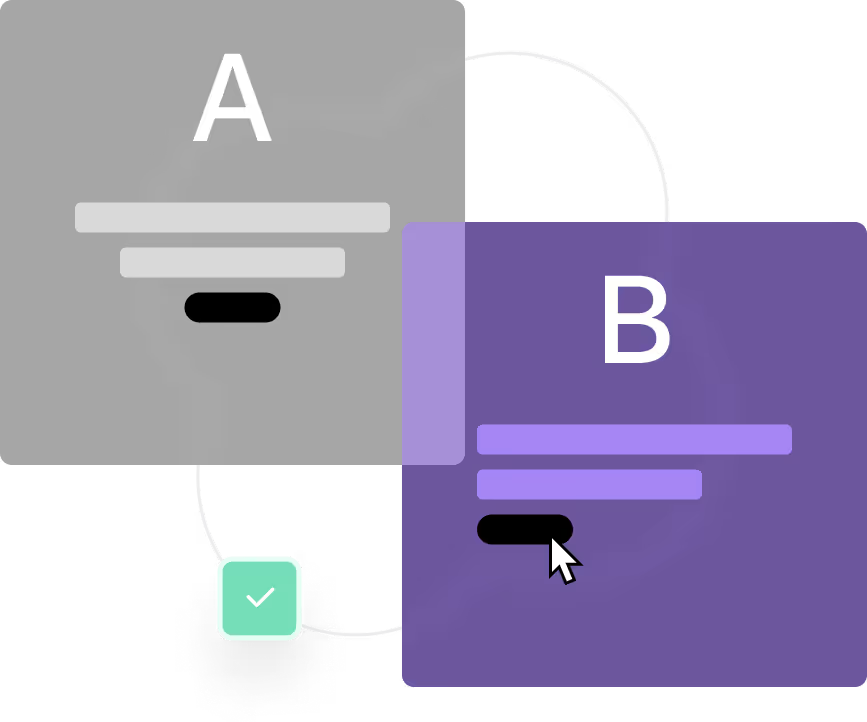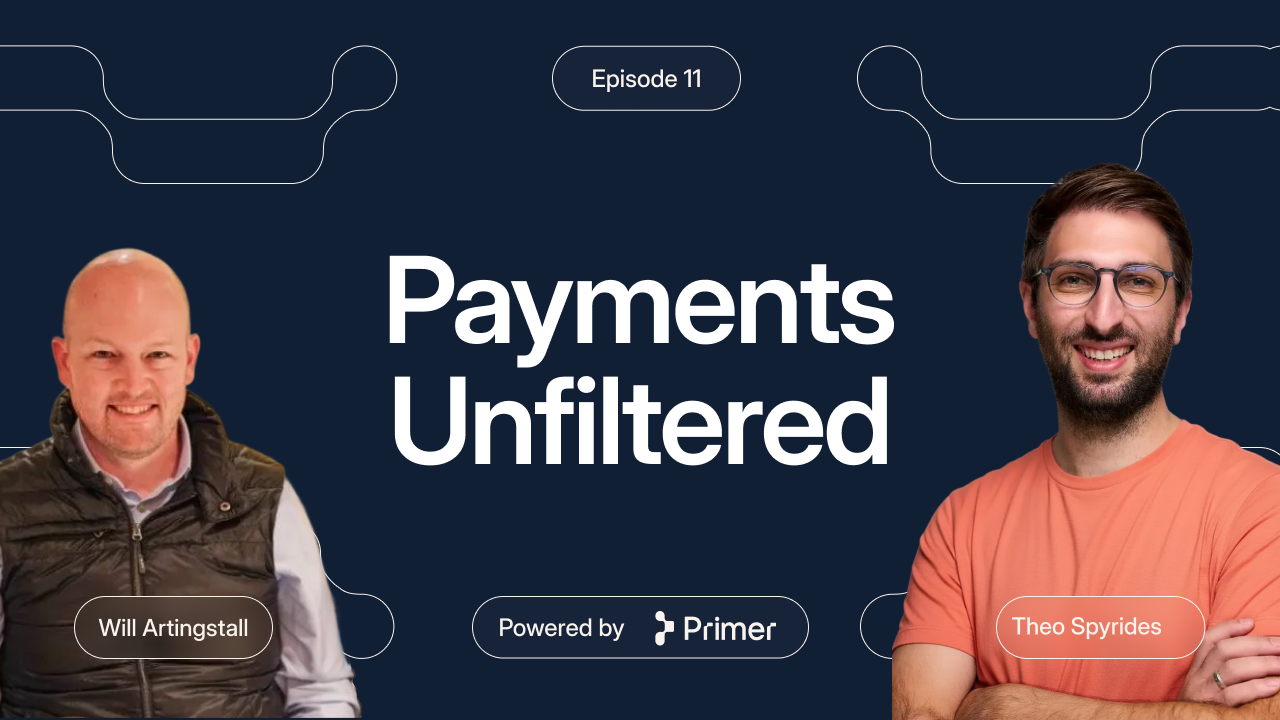Retail has changed, and so has the way retailers think about payments. Payments aren’t just transactions anymore. They’re tools that allow retailers to exceed customer expectations, gather valuable market intelligence, and, above all, boost sales and encourage repeat business.
In short, payments matter more to retailers' success than ever.
And more and more retailers are using Primer to unleash their payment potential. Our Unified Payments Infrastructure is the preferred solution for ambitious retailers like New Look, Conforama, Ego, and Maisons Du Monde. It empowers them to capture more customers, maximize revenue, trim costs, and ultimately transform payments into a strategic asset.
Let’s explore why these retailers have selected Primer.
#1: Reduce technical debt
The payment landscape has evolved dramatically over the past decade, growing increasingly complex and fragmented. Gone are the days when retailers could rely solely on card payments and a single Payment Service Provider (PSP) for transaction handling.
Today, even a retailer operating within a single market must diversify payment options and integrate multiple processors to ensure operational reliability. And that’s not to mention all payment-adjacent services now involved in the payment flow.
The result? Retailers are left dealing with a tangled web of integrations, increased costs, and potential pitfalls that often hinder retailers from realizing their full growth potential.
Our UK survey of 500 retail businesses found that 47% of retailers struggle to update their front- and back-end systems to incorporate new payment services due to technical constraints.
How we help
With Primer, retailers can dramatically reduce the complexity of their payment stack as they no longer need to build and maintain integrations directly with their PSPs, payment methods, fraud tools, and other third parties. We’ve done the heavy lifting for them, allowing retailers to access whatever payment services they need through a single integration with Primer.
Not only do we streamline the utilization of third-party services through our automation tools, but we also abstract the disparities across APIs, Webhooks, SDKs, and reporting. Additionally, we incorporate value-added functionalities made feasible only through an infrastructure layer, such as fallbacks and agnostic tokens.
The outcome? Retailers can swiftly execute go-to-market strategies, reclaim engineering resources, and reallocate them to other critical business initiatives—all while reducing development and maintenance costs.
#2: Boost payment success
Picture this: You’ve spent a fortune marketing to a customer, guiding them through your website to the checkout to complete their purchase, and then, boom, their payment fails. This leads them to abandon their cart, click off your site, and vanish into the digital abyss.
In a few fleeting moments, you've lost revenue and squandered a portion of your marketing budget. Incidents like this can also tarnish your reputation (it turns out consumers take a failed payment very personally and will tell others about it).
The scary thing is that this nightmare scenario happens every day on ecommerce sites worldwide, often without the merchants' knowledge. Even if they are aware, many lack the tools and flexibility to do much about it.
How we help
Primer equips retailers with various tools designed to enhance payment success and optimize revenue across all transactions. Among these tools are:
- Fallbacks: This feature recovers revenue by automatically retrying failed transactions using an alternate payment processor.
- Network Tokens: Visa research finds that merchants applying network tokens to their transactions realize an average 2.1% authorization rate uplift.
On average, retailers leveraging Primer’s optimization tools realize a 5% authorization rate uplift. If your annual revenue is $1 billion, that’s an additional $50 million in earnings.
It’s also worth noting that Primer offers a range of capabilities to help retailers manage the multi-billion dollar fraud challenge. We do this by allowing retailers to activate and manage fraud applications like Riskified, Forter, Sift, and Signifyd on the Primer platform. Our proprietary Adaptive 3DS and Disputes also give you other tools to stop bad actors in their tracks.
These are just a few examples of the tools retailers who partner with Primer can use to bolster their payment success. The return on investment from using these tools often far surpasses the cost of using Primer—and this is ignoring other benefits like reduced engineering/development costs!
.png)
#3: Meet customer payment preferences
You don’t need us to tell you that how consumers pay has changed. While credit and debit cards remain popular, the past decade has witnessed an explosion in usage of alternative payment methods.
How you cater to your customers' payment preferences directly impacts your business's success. Numerous research papers emphasize how neglecting your customers' payment preferences tarnishes your brand image and leads to abandoned shopping carts and reduced revenue.
Yet, many retailers struggle to meet these preferences. Often, this originates from a lack of resources to integrate various payment methods and devise a coherent strategy to offer the optimal payment options to customers.
PayPal research found that 59% of consumers abandoned their carts when their favorite payment method was unavailable.
How we help
As we explored in section one, we’ve already built integrations with key payment methods globally, allowing retailers to switch these on with minimal effort. But it’s worth reiterating how powerful this functionality is. Retailers regularly tell us that enabling a single payment method can typically take three to six months. With Primer, this process can be accomplished in mere days, sometimes even hours—without coding.
For example, we work with a UK-based luxury retailer. They had encountered challenges enabling Apple Pay for months. However, with Primer, they could switch it on almost instantly, and within a week, it became their second most popular payment method. Not only did they meet their customer's payment preferences. They also saw a performance impact as Apple Pay speeds up conversion since the shopper data is pre-filled in the wallet and has a high auth rate since it's inherently SCA compliant.
What’s more, with Primer’s Universal Checkout, you can easily configure the payment methods shown to the customers and the order that’ll optimize conversion. For instance, if your customer uses an iPhone, you can make it so Apple Pay is presented as the primary payment option at checkout.
Why Conforama chose Primer. Conforama is one of Europe's leading home furnishings retailers. Here’s why its Head of Payments, Lucas Quino, chose Primer as its Unified Payments Infrastructure: “Primer emerged as the ideal solution after a competitive RFP process because of its usability, commercial focus, payment optimization tools, and proven track record of success.” Read the story to learn more.
#4: Accelerate growth plans
Gone are the days when retailers were confined to selling solely in markets where they had physical stores. With an online presence, your products can reach every corner of the globe.
However, despite the allure of global sales, outdated payment infrastructures often hinder even the most ambitious companies from actualizing their cross-border aspirations—or, at the very least, impede their progress, thereby risking the chance of being outpaced by competitors.
How we help
Offering the right payment methods in each market you operate in is clearly essential. But what’s less considered is ensuring you use the optimal payment processor across your global markets. Not all PSPs are created equal; they possess distinct strengths and weaknesses in various geographical regions.
But with Primer, you don’t need to compromise. You can integrate with the strongest PSP in every market and ensure all payments from the country are automatically routed to that processor for the highest chance of success. And Primer’s Observability suite provides you with a comprehensive insight into your payment flows, enabling you to assess the performance of each processor in every market.
We also have a range of tools to ensure compliance with regulations specific to certain markets. For example, if you’re selling in France or Denmark and accepting card payments using the local scheme as well as Visa and Mastercard, we can ensure compliance with the co-badged card regulations.
#5: Unlock their payment potential
#1 to #4 are the typical reasons retailers first contact Primer. They have a specific payment problem to solve or are focused on optimizing their payment performance, and they’ve identified Primer as the best solution to empower them to do that.
But that's just the beginning. Once retailers begin collaborating with Primer and witness the breadth of features and functionality they can unlock through our Unified Payments Infrastructure, a world of opportunity opens up to leverage payments to enhance internal efficiencies, elevate customer experiences, distinguish their offerings, and drive revenue growth.
How we help
We’re never going to tell you how to run your business. Instead, we provide you with tools and frameworks for using payments to achieve your goals. Here are some ways we’ve seen retailers use the additional tooling and applications offered on Primer.
- Enhance customer support: Some retailers integrate our Jira tool into their payment workflows to trigger alerts when a payment fails for a VIP customer. This enables immediate response and resolution of issues.
- Reject payments from specific BINs: Leveraging Primer’s BIN look-up function, retailers can construct intricate flows to block certain card types, bolstering fraud prevention measures or fulfilling regulatory requirements.
- Create loyalty Programs: Loyalty is vital for retailers, and we have an API that allows retailers to embed and manage their reward programs using Primer.
- Create complex settlement flows: Shipping connections allow merchants to pre-authorize the cards but only collect funds when the goods are delivered.
.png)
Final thoughts
Many retailers are saddled with deeply entrenched legacy payment systems, initially designed to cater to in-store transactions and hastily adapted to accommodate online payments.
While this setup may have sufficed when e-commerce constituted only a fraction of a retailer's sales, the landscape has evolved significantly. Today, for many retailers, ecommerce serves as their primary sales channel—or, at the very least, a substantial portion of their revenue stream. To thrive in this environment, retailers must ensure their payment systems operate at peak performance.
Contact Primer to learn more about how we can unleash your payment potential.




.png)
